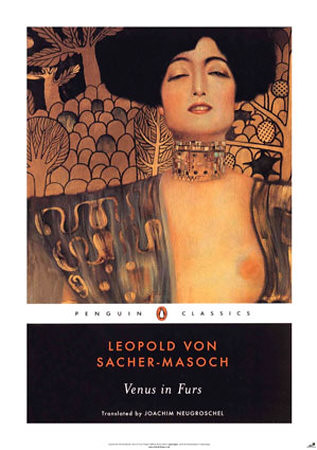
refute
Y
駁斥,反駁,駁倒
D
–verb (used with object)
1. to prove to be false or erroneous, as an opinion or charge.
2. to prove (a person) to be in error.
—Synonyms
1. disprove, rebut. 1, 2. confute.
C
confute, refute (vv.)
Both mean "to deny something or prove its falsity"; perhaps because of its archaic sense 'to confound,"
confute may be a bit stronger than refute,
but it is also less frequently seen or heard, especially in Informal writing and at Conversational levels. 
The term masochism [mas-uh-kiz-uhm] was coined in 1886 by the Austrian psychiatrist Richard Freiherr von Krafft-Ebing in his seminal (精液的,有發展性的) work Psychopathia Sexualis:
"...I feel justified in calling this sexual anomaly "Masochism," because the author Sacher-Masoch frequently made this perversion, which up to his time was quite unknown to the scientific world as such, the substratum (下層土壤) of his writings. I followed thereby the scientific formation of the term "Daltonism," from Dalton, the discoverer of colour-blindness.
During recent years facts have been advanced which prove that Sacher-Masoch was not only the poet of Masochism, but that he himself was afflicted with the anomaly. Although these proofs were communicated to me without restriction, I refrain from giving them to the public.
I refute the [accusation] that 'I have coupled the name of a revered author with a perversion of the sexual instinct,'
which has been made against me by some admirers of the author and by some critics of my book.
As a man Sacher-Masoch cannot lose anything in the estimation of his cultured fellow-beings simply because he was afflicted with an anomaly of his sexual feelings. As an author he suffered severe injury so far as [the influence and intrinsic merit of his work] is concerned, for so long and whenever he eliminated his perversion from his literary efforts he was a gifted writer, and as such [would have achieved real greatness] had he been actuated by normally sexual feelings.
In this respect he is a remarkable example of the powerful influence exercised by the vita sexualis be it in the good or evil sense over the formation and direction of man's mind."
Sacher-Masoch was not pleased with Kraft-Ebbing's assertions. Nevertheless, details of Masoch's private life were obscure until Aurora von Römelin's memoirs were published in 1905 (under the pseudonym of Wanda von Sacher-Masoch).
see anomaly revere banter taunt
edification uplift
catharsis the purging or relieving of emotional tensions
indict (of a grand jury) to bring a formal accusation against
recrimination countercharge
refute to prove to be erroneous, rebut & confute ...I refute the accusation that
castigate to reprimand severely, punish ...castigating him as a "narcissistic" part of the human anatomy
2008年7月18日 星期五
Refute ***
訂閱:
張貼留言 (Atom)
沒有留言:
張貼留言